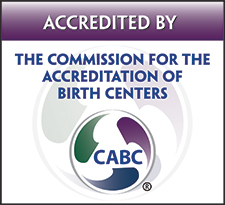Screening versus testing
Prenatal screening assesses the risk for having a baby with specific conditions through non-invasive means, including by sampling the pregnant person’s blood and/or an ultrasound. Screening reports results that categorize them as very low risk or increased risk of having a baby with specific genetic or congenital problems.
Carrier testing assesses an individual’s genetic make-up to determine if they carry certain disorders that may affect them or be passed onto offspring. Depending on the individual’s preferences, we can screen for common inherited conditions such as cystic fibrosis, or a more comprehensive list of disorders that may be less common.
Diagnostic fetal testing actually samples fetal cells in order to give very specific information about a baby’s chromosomes. While diagnostic testing may be done after an abnormal screening result, it can also be done on its own.
Candidates for screening & testing
Any individual who wants to know more about their genetic make-up can choose to have genetic screening or testing done, regardless of whether or not they are considering having children. In our practice, all currently pregnant clients are offered genetic screening and testing. We also discuss carrier screening at preconception visits.
All pregnant people or those considering pregnancy, regardless of risk factors, may choose to have a genetics consult or undergo screening or diagnostic testing.
Those who fit the following criteria are at higher risk of having a baby with a genetic abnormality and might consider meeting with a genetic counselor or choosing to have genetic screening or testing:
-
Over 35
-
History of a child with a genetic disorder
-
Family history of genetic disorders
-
Individuals in certain ethnic groups
Carrier testing
Testing of parental blood can provide information about whether certain gene mutations, such as those for cystic fibrosis, spinal muscular atrophy, and fragile X are present.
We are able to offer several options for carrier testing to any individual in our practice, including partners of those considering or currently pregnant. We generally recommend to begin carrier screening with the individual intending to become pregnant, then depending on whether or not that screen comes back positive, choosing how to screen the partner, if at all. We can draw blood in our office for carrier screening through Progenity and offer the standard, global, and exon panels.
Prenatal Screening Options
NIPT (Non-Invasive Prenatal Testing) | Cell-Free Fetal DNA Test
This blood test available anytime after 9 weeks gestation detects Down Syndrome (Trisomy 21), Trisomy 18, and Trisomy 13 with a sensitivity and specificity of 92-99% depending on the genetic abnormality. If desired, this test can also be utilized to find out the sex of the fetus, and certain blood tests may also detect sex chromosome abnormalities. NIPT can be done as an initial step or to follow up on an abnormal first trimester screen. We can draw blood for NIPT in our office through a test Progenity offers called Innatal.
Nuchal Translucency Ultrasound & Bloodwork
Done between about 11-14 weeks of pregnancy, this screening test can detect about 90% of Down Syndrome cases with a false positive rate of about 5%. Trisomy 18, Trisomy 13, and some structural abnormalities can also be detected. We typically send our clients to Laurel White or another perinatal center for the nuchal translucency ultrasound and accompany bloodwork as not all ultrasound facilities are able to perform both components of this screening.
Second Trimester Screen: Quad Screen/AFP
Done between 15-22 weeks of pregnancy, this screening test detects about 83% of Down Syndrome cases, 60% of Trisomy 18, and 80% of neural tube (brain & spinal cord) defects. If the screen is positive, further screening (NIPT) or testing (Level II ultrasound or amniocentesis) is an option. Women who did NIPT in the first trimester may opt to do a portion of this test (AFP) for evaluation of the fetal brain & spinal cord.
Fetal Ultrasound
Standard Level I ultrasounds are recommended around 18-20 weeks of pregnancy to survey the fetal anatomy. A level II ultrasound, a more detailed evaluation, can more closely look at markers for genetic conditions and may be offered to pregnant people who are at higher risk of having a baby with a genetic abnormality. This ultrasound also helps to determine the location of the placenta.
Diagnostic testing options
Chorionic Villus Sampling (CVS)
Done between 10-13 weeks gestation, this test removes a small amount of placenta tissue obtained through the cervix or abdomen and can identify various chromosomal or genetic abnormalities. The risk of pregnancy complications or miscarriage is approximately 1 in 300.
Amniocentesis
Done between 15-20 weeks gestation, this test utilizes a needle inserted in the maternal abdomen to remove amniotic fluid containing fetal cells. The risk of pregnancy complications or miscarriage is approximately 1 in 300.
Microarray Analysis
This test can be performed after either CVS or amniocentesis to identify smaller gene mutations and many syndromes and conditions.
For any type of fetal diagnostic testing, we will refer you to a perinatologist.
Hereditary cancer screening
Certain types of cancers, such as breast or colon cancer, have a strong genetic component. Depending on your family history, you may be eligible to have genetic testing done for genes that may increase your risk of developing one of these cancers. Make an appointment to discuss your familial risk factors with one of the midwives to see if your insurance will cover this type of screening.




